SUMMARY
This is AI generated summarization, which may have errors. For context, always refer to the full article.
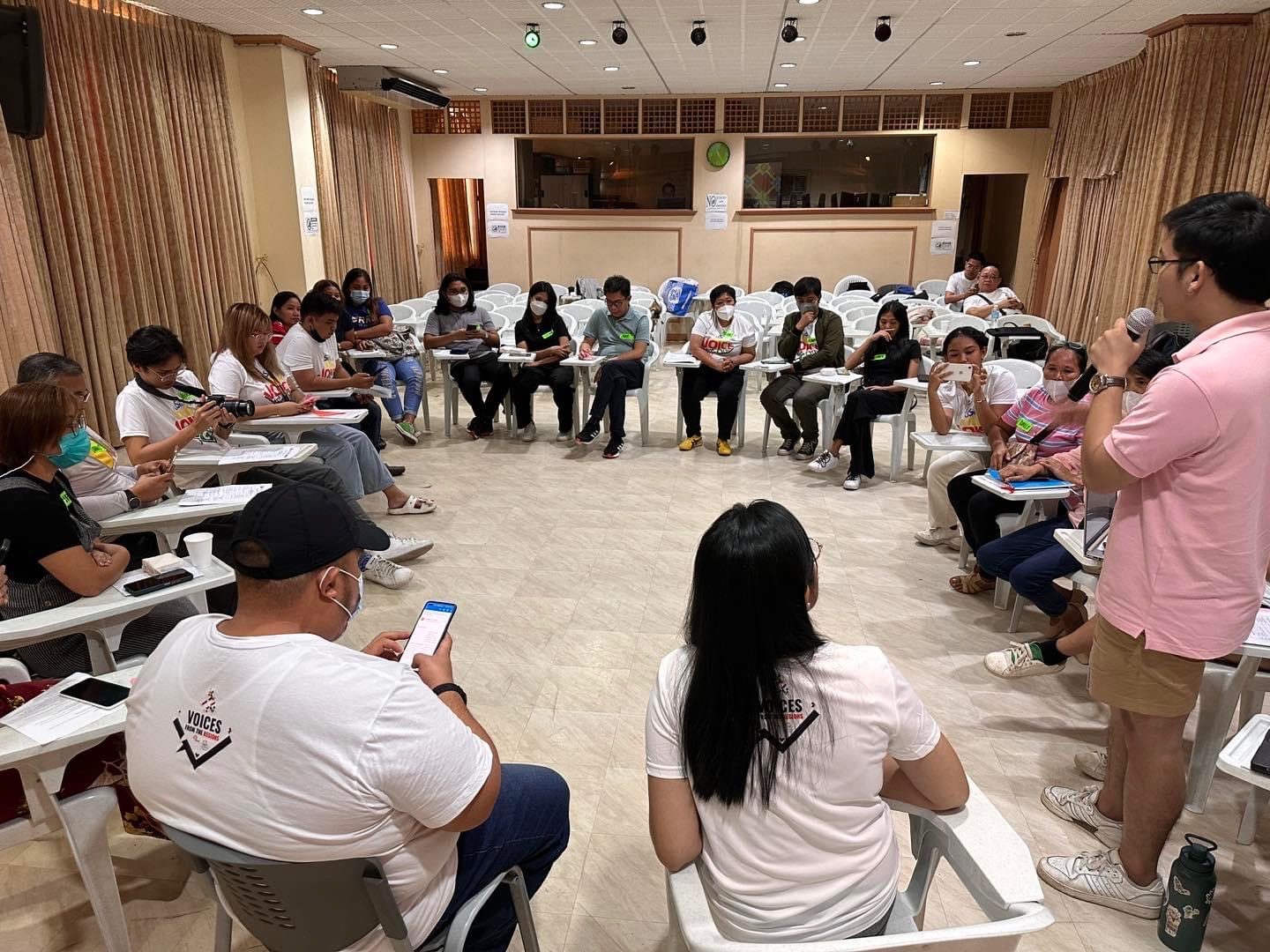
ILOILO, Philippines – Locals of Miagao, Iloilo shared their experiences on social media and how they were affected by it during a community dialogue and workshop on responsible digital citizenship held on Friday, June 2, at the University of the Philippines Visayas.
The project dubbed #VoicesFromTheRegions, led by Rappler’s civic engagement arm MovePH, was done with the support of Community Solutions Program. It was in partnership with Tib-ong Kabataan Inc, Pantawid Pamilyang Pilipino Program (4Ps) of the Department of Social Welfare and Development (DSWD) Western Visayas, Daily Guardian, iWrite, and University of the Philippines Visayas – Miagao. The activity gathered more than 80 residents including students, teachers, and 4Ps beneficiaries.
During the community dialogue, participants shared how they benefited from social media as they used online platforms for business, news, and important weather updates, research and education purposes, and the like.
“Importante gid man ang sa social media kay dira mo mabal-an ang mga impormasyon kag…mga balita sa palibot naton…mga nagakaratabo kag kung…halimbawa bagyo… kung ano ang weather sa sunod nga adlaw (Social media is truly important because that’s where you can know information and news and weather updates),” 4Ps beneficiary Jennyrose Muyong shared.
Some of them were also pushed to use social media platforms at the height of the pandemic: “Pag COVID kasi na wala gid kami bala sales bilog na year pag umpisa, te nag-gamit kami online para nga maka-income kami (When COVID happened, we didn’t have sales at all the whole year so we used online platforms to generate income),” said Anilene Tijing, a Miagao hablon weaver who used Facebook as an e-commerce platform to market and sell her goods.
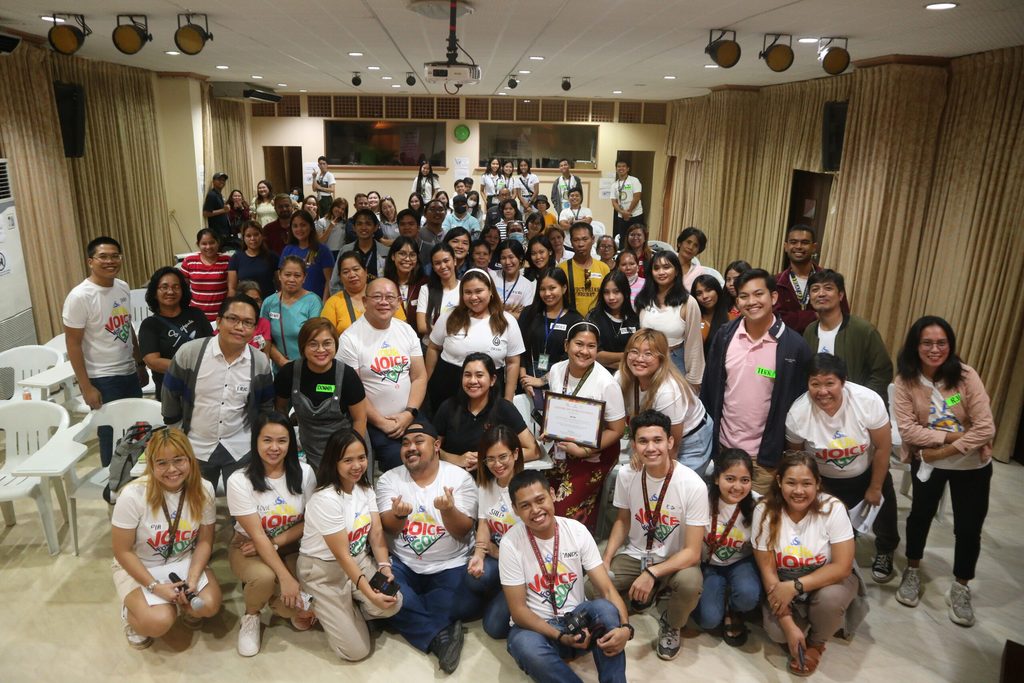
Lack of access to quality information online
Despite the benefits though, some shared several challenges they faced, especially by vulnerable groups and those in faraway provinces. In some areas of Miagao, for example, there was no stable internet connection, hindering their access to social media. This meant locals there had limited access to information and opportunities offered by digital platforms.
But the problem did not end there. Even those who had stable access to the internet still struggled with availability of quality information. Some locals of Miagao said that others got their information from alternative sources on social media because these were more available and did not require data. As most used free data on Facebook and other platforms, people were exposed to viral content regardless of accuracy.
“Doon sila pumupunta sa misinformed tsaka disinformed sites dahil ‘yun ang readily available tsaka mura… So imagine mo kung anong klaseng social media sites na napupuntahan nyan. And that would explain, sa palagay ko, kung bakit sila naniniwala sa false news, kasi ‘yan ‘yung nakikita nila sa social media, ‘yan ‘yung level of quality na nakikita nila,” chairperson of Division of Professional Education at University of the Philippines Pepito Ferdinandez said.
(They encounter misinformation and disinformation because that’s readily available on social media. Imagine the kind of sites they visit because its accessible and cheap. That would perhaps explain, I think, why they easily fall into false news because that’s what they see on social media, that’s the level of quality they see.)
With algorithms as new gatekeepers of information, some participants argued that this had made Filipinos more vulnerable to misinformation and disinformation. They shared how some trust sources because of their high engagement, even if the information may potentially be false or misleading.
“[They think..] engagement still matters for the reliability of the source or the [likes and] shares of the story… They also try to check the number of shares and comments,” UP Visayas instructor Aljohn Torreta said as he shared the points raised in his dialogue group.
Exposure to scams, dangers of social media
Irresponsible social media use not only leads to susceptibility to disinformation. It could also lead to harm and susceptibility to digital fraud.
During the dialogue, some participants flagged the proliferation of scammers in the digital landscape. Among the most common false information being spread on social media involves cash grants that pretend to be from DSWD. Rappler, for instance, has fact-checked several false claims related to this.
DSWD Western Visayas Regional Information Officer May Rago Castillo narrated how some 4Ps beneficiaries fell for misinformation and text scams during DSWD payouts that involved change in schedule or additional cash assistance. There were also scams that targeted senior citizens, coaxing the elderly to become members of a certain organization, asking them to pay certain fees.
“In the release of assistance to individuals in crisis situations, do not believe people who will tell you that you have to go to a certain politician to get a referral. You can get our assistance even without the referral,” Castillo said, debunking some false claims.
Some beneficiaries like Juanita Muyana shared how she personally experienced being scammed when a hacker used her personal Facebook account to solicit donations from her friends using virtual wallet Gcash. (READ: Phishing 101: How to spot and avoid phishing)
Given these challenges, people should learn how to use social media responsibly. For one, parents can guide their children.
But according to Carl Dulla, a community leader at Tib-ong Kabataan, parents and families who have access to social media will most likely focus on their main priority. That priority is to provide income for their families. Thinking about how to focus and analyze what they see and read online is on the back burner.
“What happens is, when it comes to responsibilities on social media, parents should lead the talk to guide their family. When parents do not have access, it’s the children who have. But they are unable to use that for good or to their advantage,” Dulla said in Filipino.
What can be done
In cases of scams, Castillo advised the audience to coordinate and report to the Regional Anti-Cybercrime Unit (RACU) of the Police Regional Office (PRO-6) Western Visayas and file a blotter of scam incidents at the nearest police station. She also suggested deleting payment history in apps as it can be used by other people for other purposes. (EXPLAINER: What is digital fraud and how do you protect yourself from scams?)
On top of this, it is also important that individuals are taught how to critically scrutinize online information because this has real-life impact: “It’s not enough to orient people about how to use social media responsibly but also give them quality access [so they can learn and access verified sources],” Fernandez added. (FAQs: Fact-checking to stop disinformation online)
For Castillo, though, one way to go about this is to create infographics and notices debunking false information that would be easily available and relatable to communities both online and on-ground.
“So if we see fake news, we come up with infographics telling that this is fake news and that this is not supposed to be followed by our beneficiaries. We post notices and press releases on the matter so beneficiaries would be aware. We have field-workers who can actually clarify matters if there are issues,” Castillo pointed out in the panel discussion that proceeded after the dialogue.
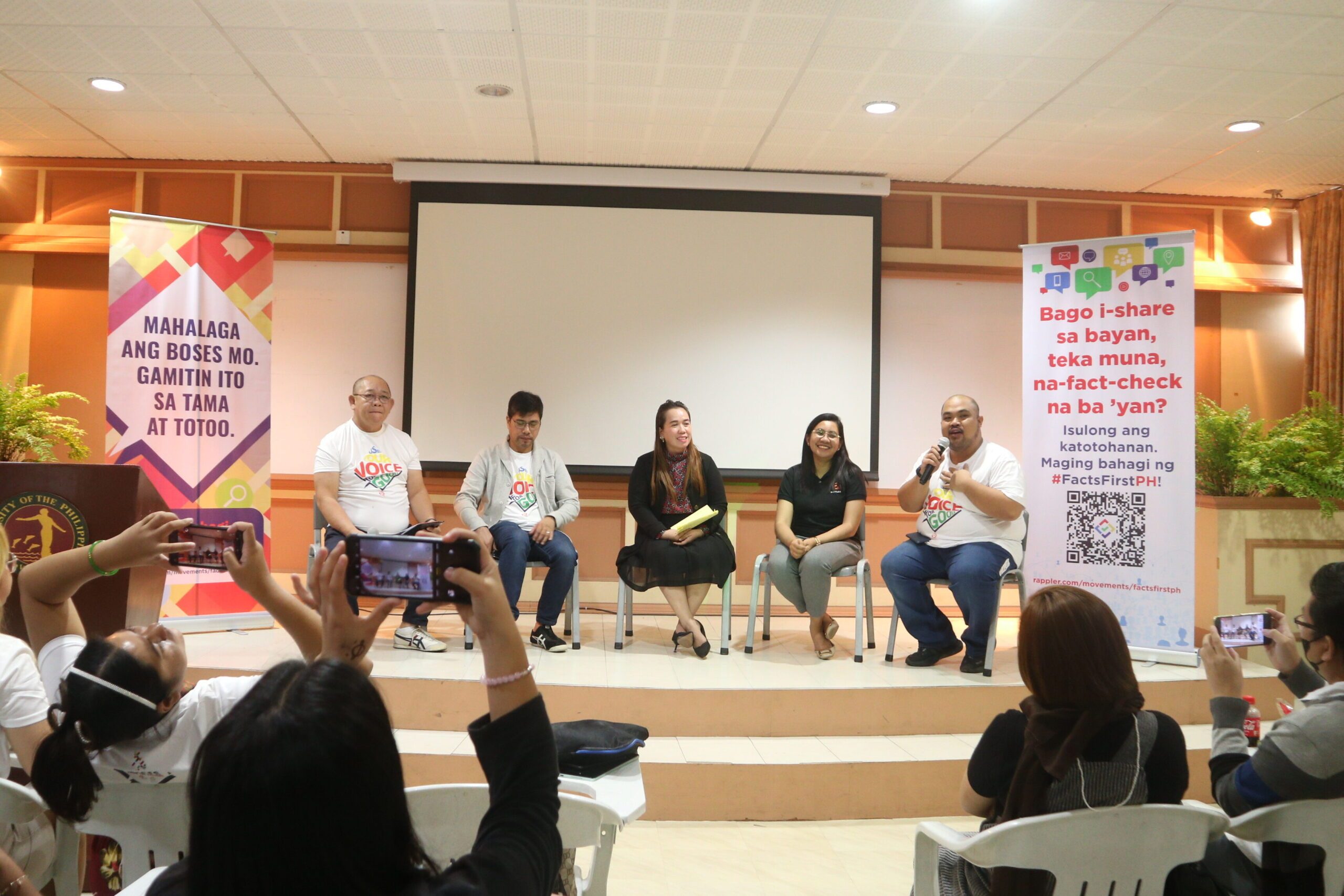
Local news media Daily Guardian editor in chief Francis Angelo reminded the participants of the importance of research: “[Kailangan natin ng] mas malalim pang pag-aaral at pag-examine sa mga nakikita natin sa Facebook […] Bago mag-click, mag-share, o mag-comment at engage, basahin o i-verify muna. (We need deeper research and examination of the content we see on Facebook. Before we click, share, or comment, read or verify first.).
Angelo also highlighted the importance of journalism in today’s media landscape and the need to strengthen community journalism: “Journalists go out of their way to bring factual information to inform and educate the masses… That’s the purpose of journalism – to clarify everything, explain the issue, and let the people decide, debate if needed.”
He also mentioned what differentiates journalists from content creators is the process of verification that stories have to go through before they are published.
“[Para sa mga] journalists, may mga pinagdadaanan ang ating mga balita (For journalists, stories go through various processes of verification),” Angelo said, pointing out the stark contrast with content creators whose posts primarily aim to engage and entertain audience along the way.
For UP Visayas iWrite campus publication adviser Zoilo Andrada Jr., collaborating with various sectors can help promote responsible social media use.
“I created a student org called iWrite to expose the members of our organization. The word is collaboration, we are willing to work with the municipality, other schools, with the residents of the community, and the UP Visayas. It’s a big challenge for our journalism students to really realize this kind of endeavor,” Andrada added, emphasizing the role that locals and students can do to spread facts.
Rappler’s community and civic engagement specialist and project lead of #VoicesFromTheRegions initiative Jene Anne Pangue echoed this. She cited how various sectors can complement the work of organizations in fighting disinformation and promoting digital citizenship.
“You don’t have to reinvent the wheel, there are existing efforts that are being done to help combat disinformation and amplify facts. One big movement is through #FactsFirstPH. We saw how the work does not only involve the media, government or private institutions. It’s the entire nation. Each community member has the capacity to help. Each of us has a voice that we can amplify. Use it for the good and in a responsible way,” she added. – with reports from Myrrh Flores/Rappler.com
Myrrh Flores is a Rappler volunteer from University of the Philippines Visayas. She is a freshman studying Bachelor of Arts in Communication and Media Studies, currently specializing in Journalism and Radio Broadcast.
Add a comment
How does this make you feel?

![[Be The Good] Introducing ‘The Listening Project’](https://www.rappler.com/tachyon/2024/05/carousel-4.png?resize=257%2C257&crop=424px%2C0px%2C1080px%2C1080px)

![[WATCH] #TheLeaderIWant: Filipino voters sound off on community issues a year before 2025 elections](https://www.rappler.com/tachyon/2024/05/filipino-voters-sound-off-on-community-issues-1.jpg?resize=257%2C257&crop=276px%2C0px%2C720px%2C720px)
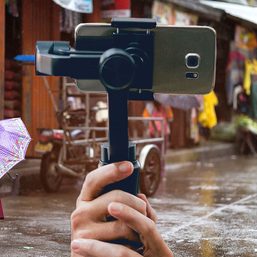








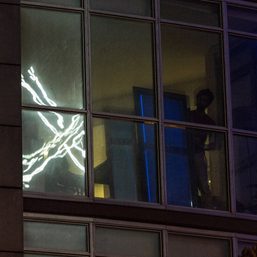

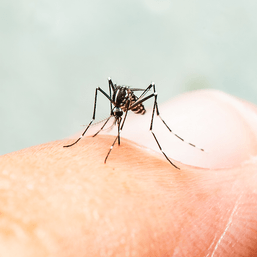



There are no comments yet. Add your comment to start the conversation.